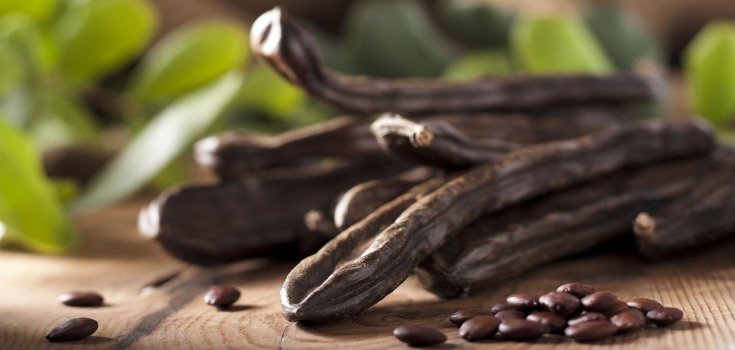Simple Tree Leaf Kills Bacteria That Leads to Food Poisoning

The Centers for Disease Control and Prevention estimates that approximately 1 in 6 Americans (48 million people) get sick, 128,000 are hospitalized, and 3,000 die of foodborne diseases each year. But the good news is that there are solutions to this ever-so-common food poisoning; you don’t have to be scared to eat (for this reason, anyway). The American Chemical Society has published a promising report showcasing how the leaves of the carob plant inhibit virulent food-poisoning bacteria.
As the study published in Journal of Agricultural and Food Chemistry points out, carob leaves also target the microbe listeriosis, which causes one of the most serious forms of food poisoning. Those who have ever experienced profound nausea, stomach cramps, and even a fever know how miserable a bout of food poisoning can be. While staying well hydrated can help to flesh any unwanted bacteria from the gut, carob leaves seem to have a special quality for expediting the death of dangerous microbes in a hurry.
It turns out that leaves of the carob plant, the substitute often used for chocolate, are a rich source of antibacterial plant compounds that can kill one of the microbes often responsible for causing foodborne illness.
Nadhem Aissani and colleagues are intrigued by the carob plant, since antibiotic-resistant bacteria are a common problem in the modern food supply. When food poisoning is serious, it can even cause death. Listeria monocytogenes has caused food poisoning outbreaks in a dozen states, claiming several lives in the process.
The leaves inhibited growth of listeria in laboratory cultures, and even explained the possible action for natural anti-bacterial compounds in the process. Further tests will be conducted on meat and fish samples that are growing the listeria bacteria to see if it is just as effective but the scientists who conducted the study say it looks promising.
Read: The Power Bacteria-Killing Spice with Super Antioxidants
The researchers concluded:
“Their report describes tests in which extracts of carob leaves proved effective in inhibiting the growth of Listeria bacteria growing in laboratory cultures. Further, it offers a possible explanation for the antibacterial action. The results were promising enough for the scientists to plan further tests of carob extracts on Listeria growing in meat and fish samples.”
The carob plant is a flowering, evergreen shrub that grows in the Mediterranean. It has been consumed since ancient times. It improves digestion and has even been used to treat lung cancer. The vitamin E content in carob helps in treating cough, flu, anemia and osteoclasis. It has been used for other ailments as well.
Those who know that chocolate is toxic to dogs might already be familiar with carob, since it does not contain caffeine or theobromine. Similarly, others who simply want to substitute chocolate often turn to carob. Now they can turn to the plant to fight a dangerous bacteria.
